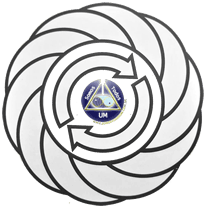How to develop our self-esteem
 Publicado dia 10/27/2004 11:54:17 AM em STUM WORLD
Publicado dia 10/27/2004 11:54:17 AM em STUM WORLDCompartilhe
Translation: Luciana Soares - [email protected]
Final revision: Françoise Killick - [email protected]
When we are children, we need our parents' opinion (or the opinion of those who play this role) to make us feel self-confident in the world, accepted and "normal", both for other people and ourselves. As we grow up, other people's opinion about our own ideas and attitudes also becomes important, as we are, after all, social beings.
It is in the relation we maintain between our inside and outside worlds that our self-image develops, checked against the evaluation of our potentiality and limits, on the basis of a more assertive and careful perception of our own truths.
Self-esteem is a dynamic and ongoing process that begins in childhood. It is the basis of our emotional structure and it is of the utmost importance to understand and discuss this question.
As we grow up, we learn how develop our affections based on the relationships we experienced throughout our life. We know we are influenced by our parents and the people we liked in our childhood. We know these people will be our role models and references for a long time. Family is our first social group that offers us the parameters we need to behave socially. We therefore build our personal "coat of arms", influenced by myths and truths about ourselves and the world. Our self-value is built up all over our life, since our early childhood, according to our attitudes, behaviors, feelings and choices.
During our childhood we need to be reassured, or, better saying, "fed" by our parents' unconditional love. We thus give way to self-assurance and, consequently, to autonomy and independence. But, for that, the quality of the affectional relationship with our parents is of the utmost importance and plays a fundamental role in the trust we have in this feedback.
Unconditional love implies accepting the other as a whole, with all his "faults" and "qualities", but the limit between full acceptance and frequently weakens and becomes difficult to understand. Let's take the example of parents who, in the difficult task of education, offer too much without asking anything in return. They are not teaching gratefulness. The result will be little tyrants, egocentric and overbearing children, who will inevitably suffer not to understand that the world is bigger than the borders of their house. Another common mistake in understanding unconditional love is lack of limits.
Some parents simply can't establish limits because the frequently fear that frustrating the child would make them lose his love. Thus, they offer the child a mistaken idea that everything is possible and allowed. What many people don't know is that the limit is used as a parameter and not as a restriction, extremely important for the development of the notion of respect, which has an essential role in helping the child to realize his own characteristics, difficulties and potential, and his own and the others' existence.
During adolescence, we exist according to outside references, friends and groups; it's the age of the idols, of fashion and "intelligent chats". Each one of us lives this moment in his/her own way, according to his/her life history and personality.
Thus, we learn how important we are to the world and we find out our personal value. Sometimes that process doesn't occur as expected, creating unsafe, unsatisfied and often bitter children, adolescents and adults, with more or less esteem for themselves and the others.
To repair "low" self-esteem, we can, by deepening our self-understanding through psychotherapy, develop another look about ourselves, often positive, without prejudice to unveil our characteristics and make them work in our favor, thus discovering who we really are, what are our desires, fears, needs, potential, in short, our uniqueness.
As we face our qualities and defaults and learn to accept them, we accept things, get closer to the human in us, revise our self-criticism and forgive ourselves for being authentically imperfect.
| Consulte grátis | |||||
Leia Também
Como desenvolver nossa Auto-estima
Sobre o autor
 | |
Psicodramatista Didata Supervisora
Terapeuta em EMDR pelo EMDR Institute/EUA
Consultório (11) 5083-9533
Email: [email protected]
Visite o Site do Autor
Siga-nos:
NOSSO TRABALHO
Quem Somos
Nossa Missão
Colunistas
Cadastro Gratuito
Descadastramento
Depoimentos
Mapa do Site
Rss
Arquivo
Quem Somos
Nossa Missão
Colunistas
Cadastro Gratuito
Descadastramento
Depoimentos
Mapa do Site
Rss
Arquivo

© Copyright 2000-2025 SomosTodosUM - O SEU SITE DE AUTOCONHECIMENTO. Todos os direitos reservados.
Política de Privacidade - Site Parceiro do UOL Universa

